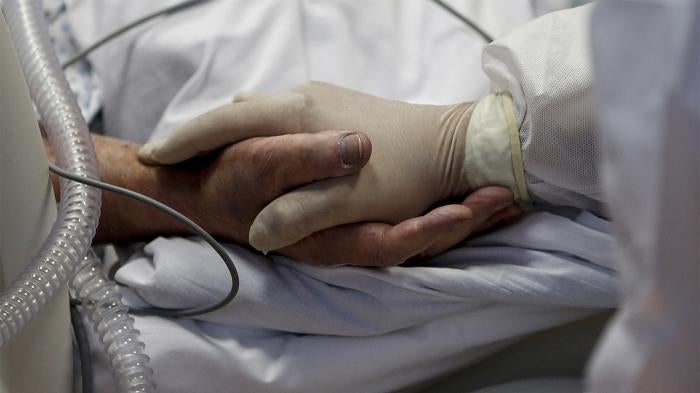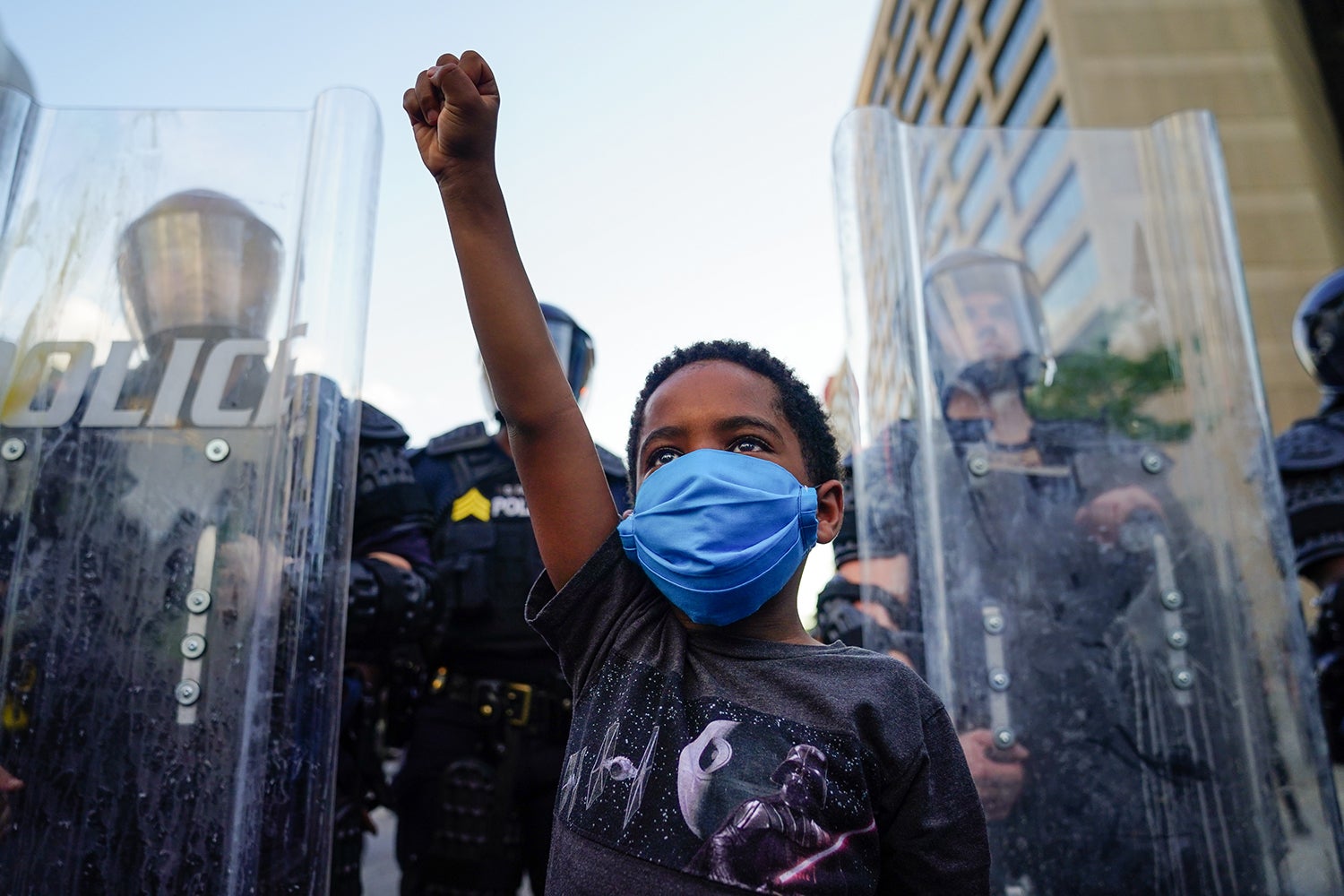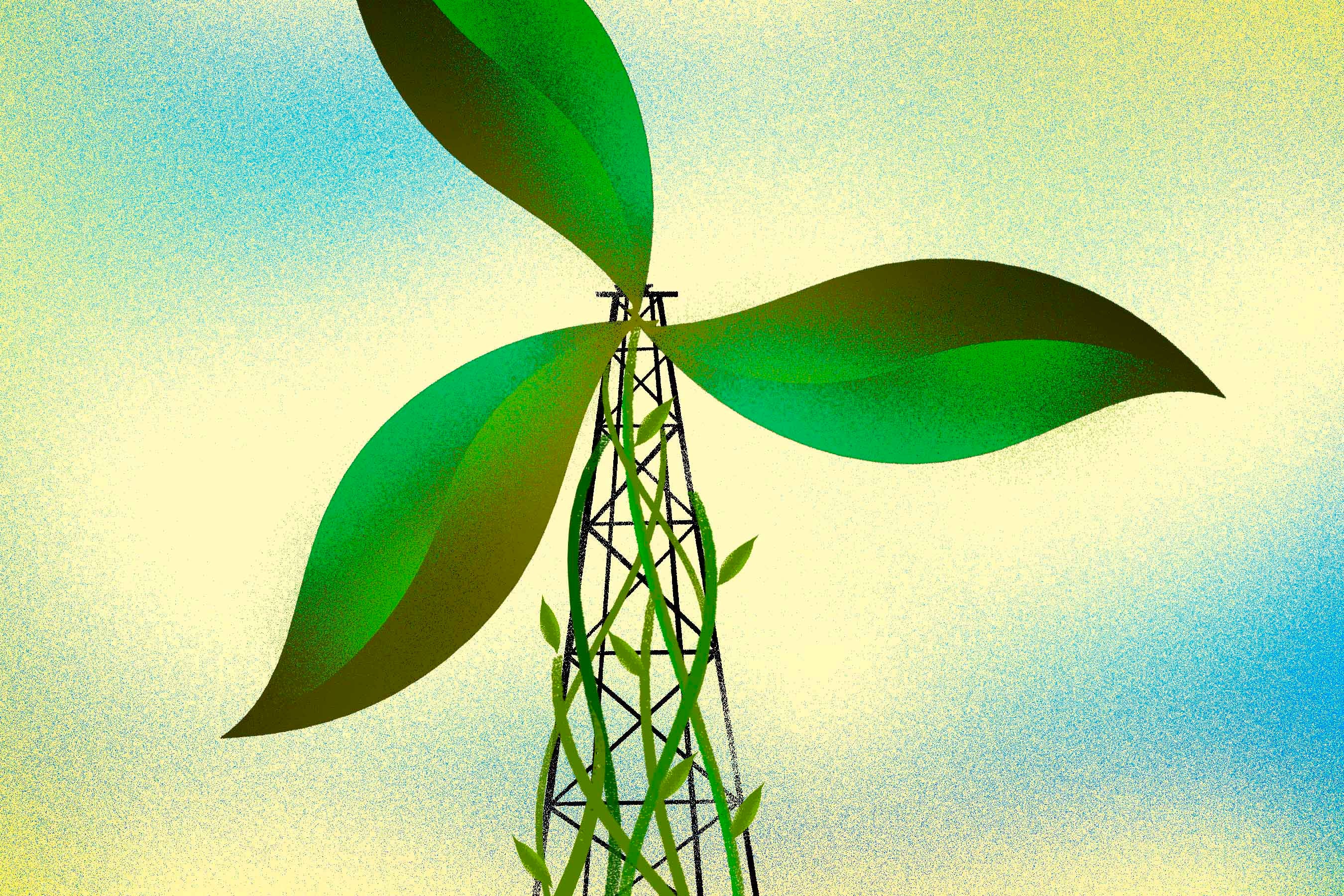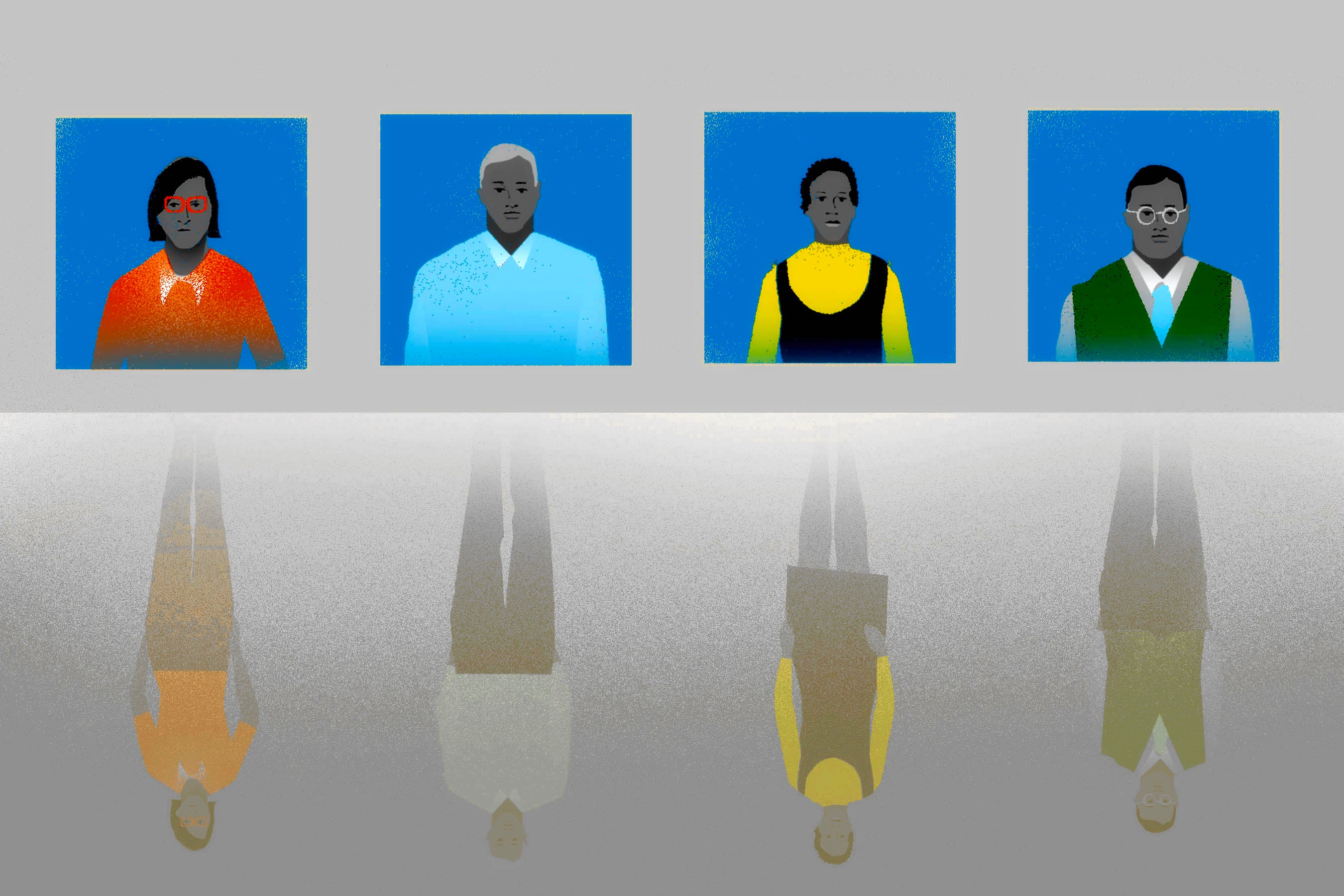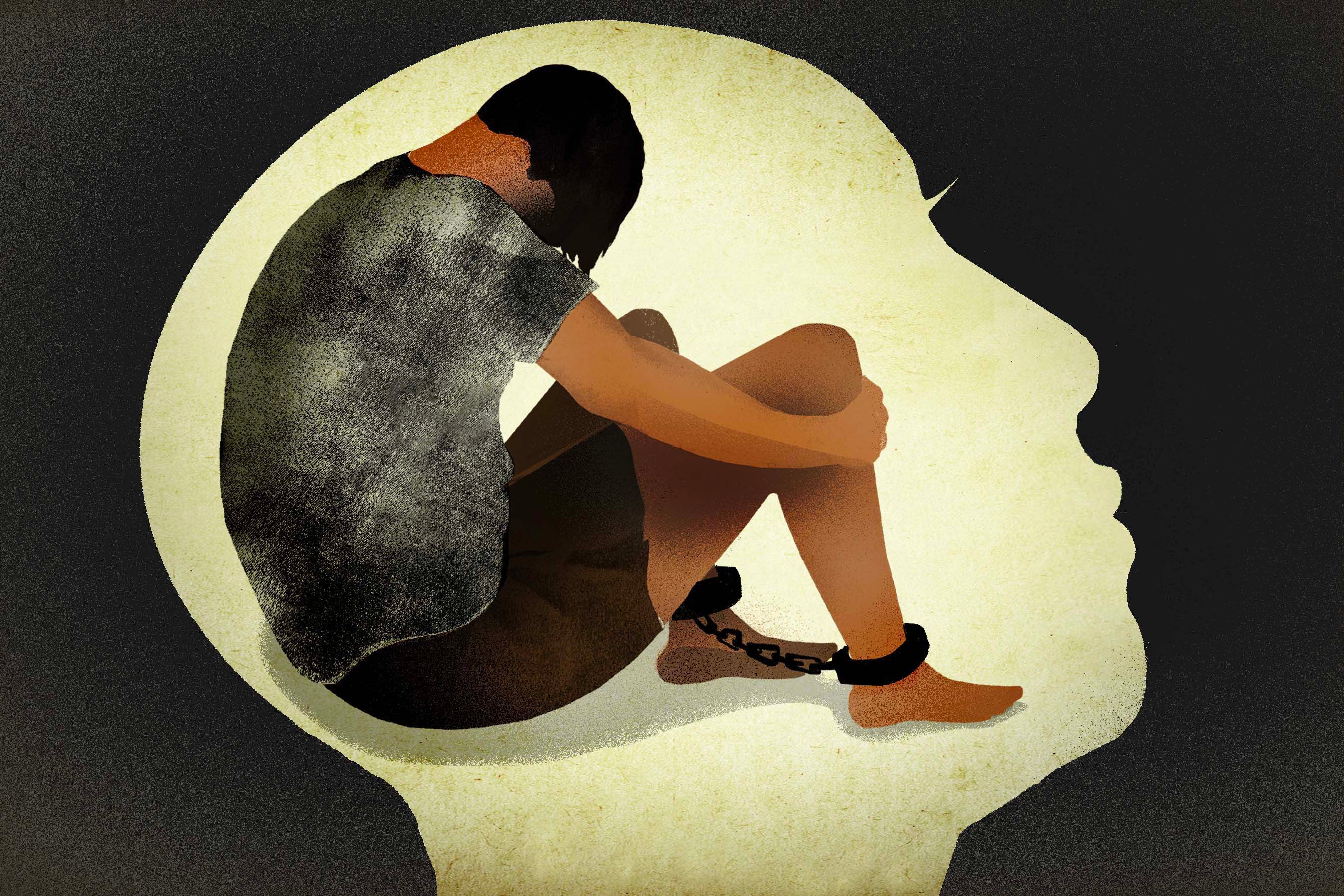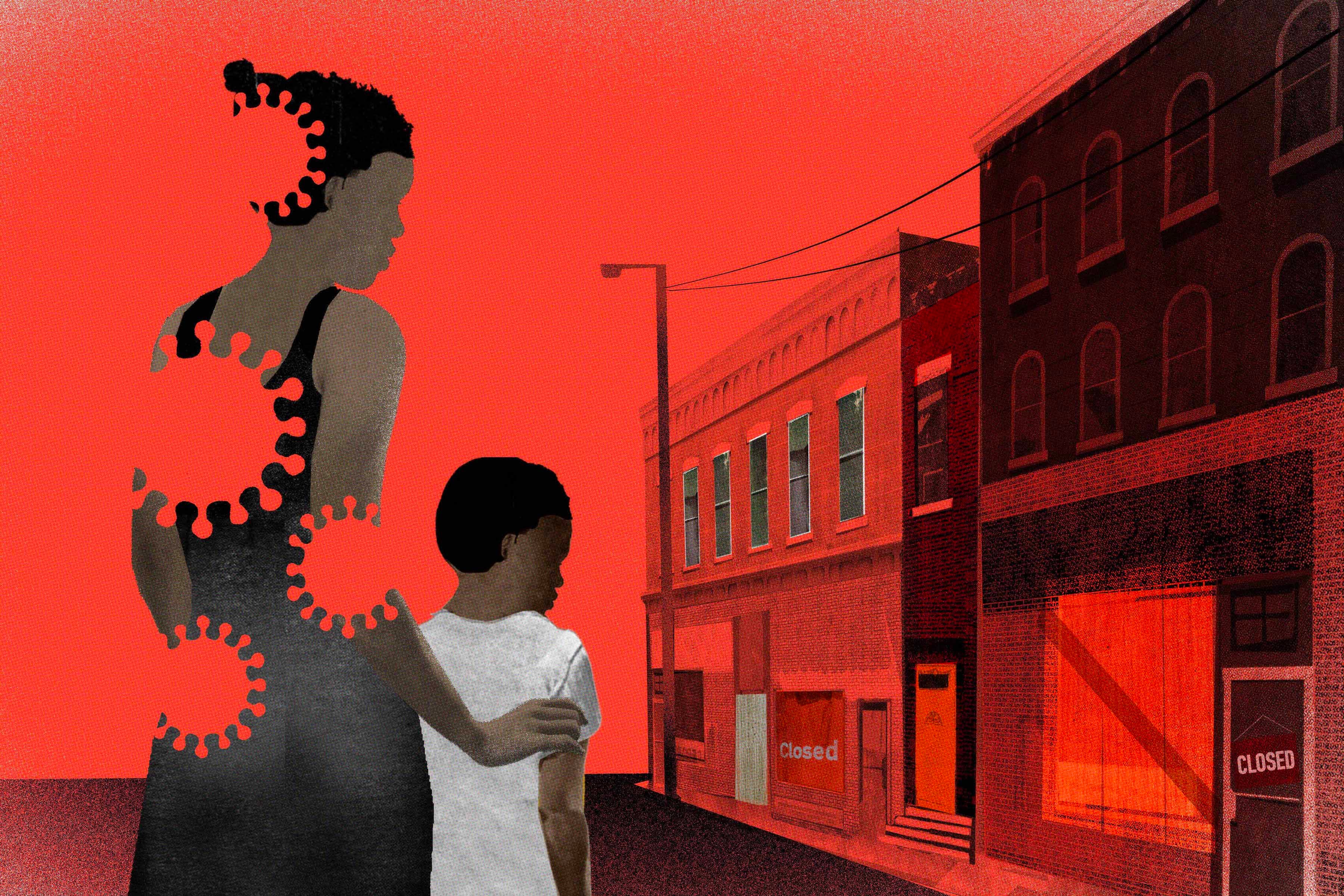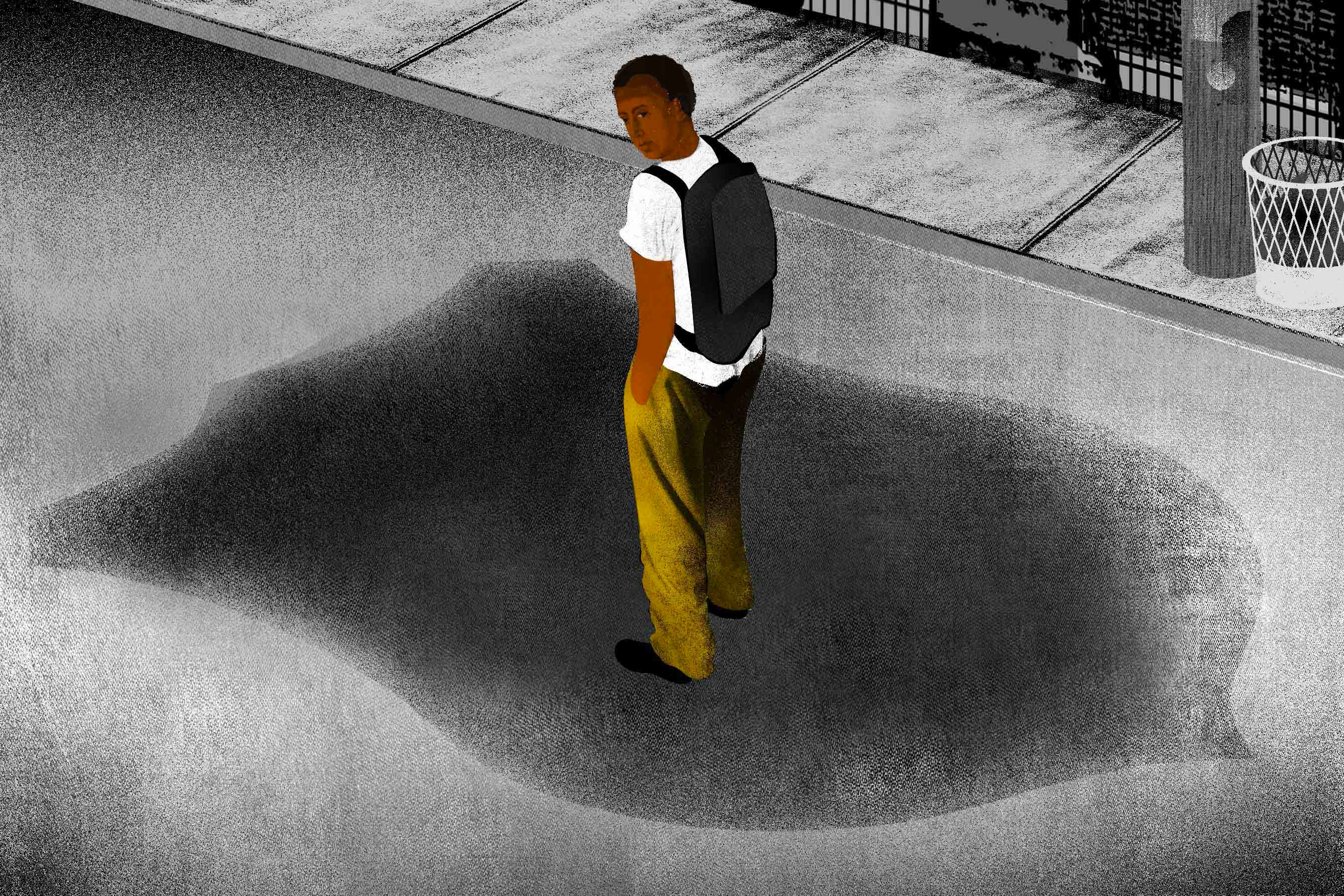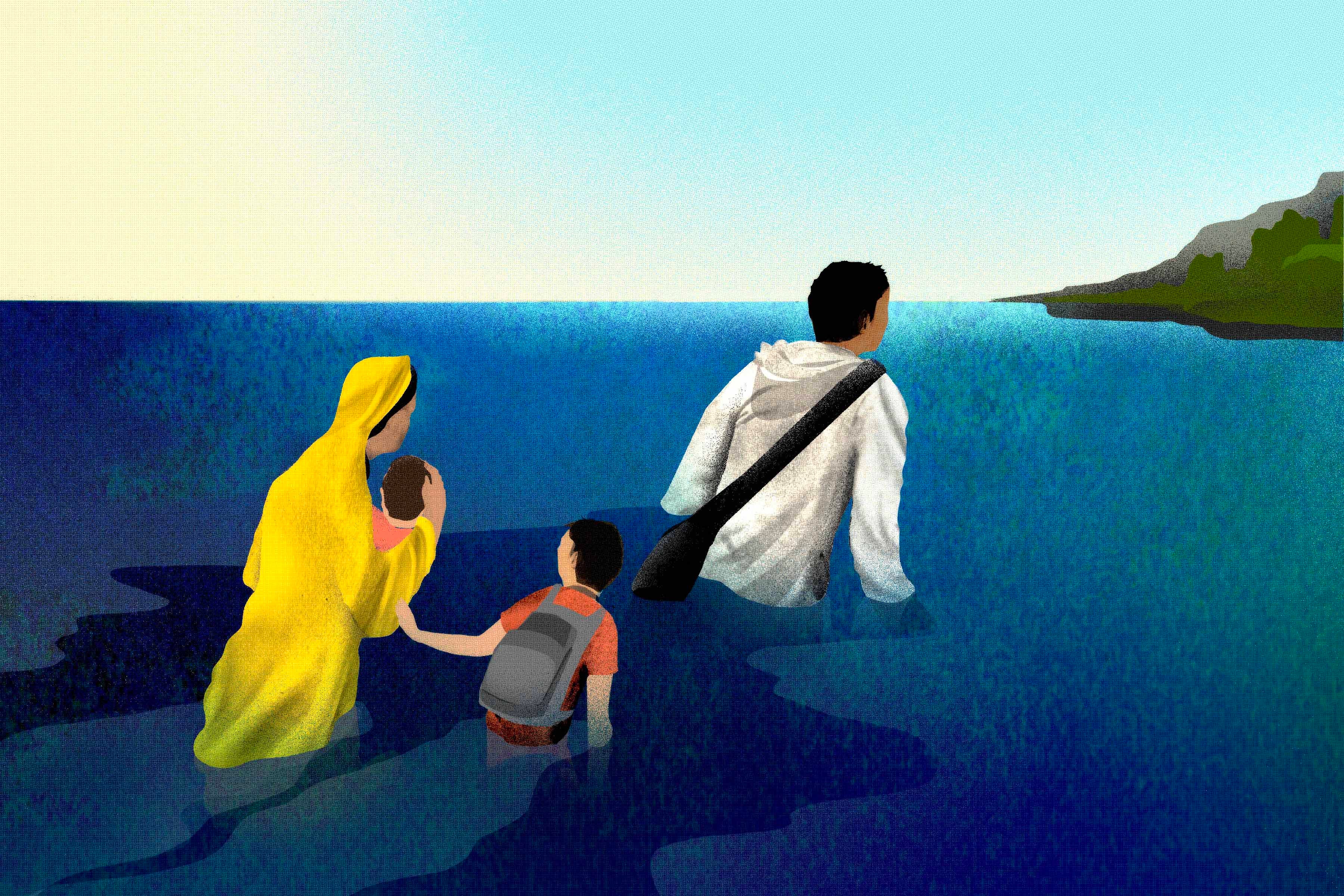The Covid-19 pandemic altered the lives of everyone in the European Union in 2020, with some member states more affected than others by the public health emergency and socioeconomic consequences of lockdown measures. Despite some efforts at the EU and national levels to mitigate the worst impacts, the public health crisis had a disproportionate impact on certain groups—older people, people in poverty, marginalized groups including people with disabilities, Roma, and migrants—and deepened existing fault lines in EU societies and politics.
In March, the EU Commission proposed a European Climate Law to make obtaining climate neutrality—including by reducing greenhouse gas emissions—by 2050 a legally binding objective, building on commitments in its December 2019 European Green Deal. In October, the EU Council proposed that over a third of the funds of its latest pandemic recovery plan would contribute to climate action and environmental sustainability, pending approval from the European Parliament. The United Kingdom exited the EU in January.
Migration and Asylum
The European Commission released a wide-ranging New Pact on Migration and Asylum in September, capping off a year marked by border closures, pushbacks, and increased vulnerability of asylum seekers and undocumented migrants amid the Covid-19 pandemic. Though promoted as a “fresh start,” the pact confirmed the focus on sealing borders and boosting returns, included proposals that could undermine safeguards and increase detention, and failed to present innovative proposals for rights-respecting migration management.
About 73,000 people arrived irregularly at EU’s southern borders in the first 10 months of 2020—a decrease compared to the same period in 2019—while 726 died or went missing at sea.
Despite guidance from the European Commission in March and April on migration and asylum in the context of the Covid-19 pandemic, including the obligation to ensure access to asylum even amid border closures, some member states de jure or de facto suspended asylum procedures. Italy, Spain, and Portugal took measures to protect and in some cases extend access to public health care and other rights during the pandemic.
Nongovernmental and international organizations reported cases of pushbacks, often accompanied by violence, or denials of access to asylum at many EU land external borders, including in Greece, Bulgaria, Croatia, Hungary, and Slovenia. Greece used force in response to a spike in the number of migrants and asylum seekers arriving at its land border with Turkey in March and officially suspended its asylum procedure for one month. Malta, Cyprus, and Greece engaged in pushbacks at sea. In November, the Management Board of the European Border and Coast Guard Agency (Frontex) set up a working group to conduct inquiries into allegations of the agency’s involvement in pushbacks in the Aegean Sea.
In April, Italy and Malta declared their ports “unsafe” because of the Covid-19 pandemic. Italy allowed nongovernmental rescue boats and merchant ships to disembark people, often after unnecessary delay, but then impounded ships and airplanes deployed by rescue groups. In September, the European Commission issued guidance to prevent criminalization of sea rescue, though the narrow interpretation seemed to allow for continued harassment of other humanitarian activities.
Substandard and crowded living conditions of asylum seekers and seasonal migrant workers, many of them undocumented, in countries across the EU put them at heightened health risk during the pandemic. National authorities in Spain, Italy, Germany, and Greece resorted to indiscriminate lockdowns of reception facilities. Malta detained hundreds of people on small tourist ferries for weeks without any clear social distancing or isolation protocols. Spain failed to ensure adequate conditions or access to information or asylum amid a significant increase in arrivals by sea to the Canary Islands.
A fire that destroyed the overcrowded Moria refugee camp on the Greek island of Lesbos, in September, leaving almost 13,000 people homeless, was a stark reminder of the humanitarian crises at the EU’s external borders. A handful of countries pledged to relocate small numbers of persons disembarked in Italy and Malta following sea rescues, and in April, a group of 13 EU and other European countries started relocating at least 1,600 unaccompanied migrant children from Greece.
In April, the Court of Justice of the European Union (CJEU) ruled that Poland, Hungary, and the Czech Republic broke EU law by refusing to implement the 2015-2017 emergency relocation mechanism.
In its pact, the commission proposed new criteria for determining which EU country should examine asylum claims, including considering family ties, but left in place the general rule that the first country of entry into the EU is responsible. The commission also proposed a “responsibility-sharing approach” under which a country that refused to accept relocating asylum seekers would instead “sponsor” deportations.
The EU pursued its long-standing efforts to enlist third countries in migration control, notably in its support to the Libyan Coast Guard to facilitate interceptions. At least 8,247 people were disembarked in Libya in the first 9 months of the year, despite risks of arbitrary detention, torture, and other abuses in Libya.
Discrimination and Intolerance
The European Commission published in September an action plan against racism, the first high-level recognition of structural racism in the EU. The plan commits the commission to appointing an anti-racism coordinator and to mainstreaming an intersectional approach to countering discrimination throughout EU policymaking.
The Covid-19 pandemic triggered an increase in racist and xenophobic incidents against national or ethnic minorities, including verbal insults, harassment, physical attacks, and online hate speech. The EU’s Fundamental Rights Agency (FRA) noted reports of racist incidents linked to the pandemic in most EU member states in February-March, particularly targeting people of or perceived to be of Asian origin, but also Roma, Muslims, Jews, asylum seekers, and people with disabilities. The FRA said in July that the pandemic is increasingly exploited as a pretext to attack minorities already subject to discrimination, hate speech, and hate crime, particularly on social media. There were reports of discriminatory police enforcement of Covid-19 related restrictions.
The FRA noted in September that antisemitism remains a problem in Europe and called on EU countries to do more to tackle under-reporting and gaps in data collection.
In April, the European Disability Forum said people with disabilities face obstacles in accessing community-based support and protective equipment during the pandemic. The Council of Europe (CoE) Human Rights Commissioner called on European countries to incorporate the views of people with disabilities in policymaking, prevent disruption of support services, and address additional risks in closed institutions, including by moving people out of these institutions as much as possible.
Roma continued to face discrimination in housing, employment, education, and healthcare. The Open Society Foundations noted in April that Bulgaria, Hungary, Italy, Romania, Slovakia, and Spain have not responded with proportionate attention to the much higher risk of death from Covid-19 in Roma communities. A 2019 FRA survey, published in September, found that Roma in five EU countries and the UK cannot afford basic items “such as healthy food or heating,” and up to a fifth of their children go to bed hungry. In January, the CoE Committee of Ministers adopted a new action plan for Roma and Traveller inclusion, to combat “anti-Gypsyism” and discrimination and to support equality.
Following the killing of George Floyd in the United States in May, the FRA called on EU countries to fight discriminatory ethnic profiling, better support victims of racism, and properly prosecute perpetrators. In July, the European Commission against Racism and Intolerance (ECRI), a CoE monitoring body, warned against racial profiling in policing in Europe and called for the establishment of fully independent bodies to investigate incidents of alleged police abuse.
ECRI expressed concern about the lack of comprehensive and systematic data collection on hate crime in Austria, Belgium, and Germany in reports published in 2020.
Discrimination on the grounds of gender and sex remained widespread. The pandemic triggered a surge in domestic violence, especially violence targeting women, and deepened existing gender inequalities. In June, the European Committee of Social Rights said it found violations of the rights to equal pay and to equal opportunities in the workplace in 13 EU member states. At time of writing, six member states and the EU had yet to ratify the CoE Istanbul Convention on combatting and preventing violence against women, while Poland was threatening to pull out of the convention.
While France, England, Spain, and Germany, among other places, facilitated access to medical abortion in light of pandemic-related travel restrictions and the need to minimize hospital stays, women in countries including Italy, Romania, and Poland reported increased difficulty in accessing safe and legal abortion during lockdown measures.
The EU adopted in mid-November its first-ever five-year LGBTIQ Equality Strategy. A 2019 FRA survey published in May, found that physical or sexual attacks against sexual and gender minorities remain widespread, with victims of discrimination and abuse reluctant to report incidents to authorities. The survey found that one in five trans and intersex people across the EU were physically or sexually attacked, double that of lesbian, gay, and bisexual people.
Attacks in Austria, France, and Germany during the year, attributed to Islamist or far right extremists, claimed the lives of twenty-two people (including three attackers) and wounded dozens. There were concerns that legal and policy responses could further stigmatize Muslims. A joint statement in November by EU interior ministers on countering terrorism raised concerns about discrimination and freedom of expression and religion, despite their pledge to not compromise fundamental rights and freedoms.
Poverty and Inequality
The public health crisis caused by the Covid-19 pandemic, lockdown measures, and ensuing economic recession had a disproportionate impact on people living on low incomes or in poverty.
In April, the European Commission made European Social Fund (ESF) rules more flexible to allow member states to deploy resources to mitigate the socioeconomic effects of the pandemic, and by September had created a €100 billion ($117 billion) fund to lend states to help preserve employment.
Nevertheless, Eurostat data showed increasing unemployment across the EU from March through July, with women workers more affected than men and unemployment among people under 25 rising particularly sharply. Several governments quickly put in place additional temporary income and job support measures to mitigate the impact of widespread business closures, helping to shore up workers’ living standards. At time of writing, a proposed EU-wide permanent unemployment benefit reinsurance scheme was still under development.
Reliance on emergency food aid—a key indicator of poverty—rose across the EU during the year. The European Food Bank Federation estimated that demand for food in June was up 50 percent higher than in the previous year. National food bank networks in Greece, Ireland, and Spain, and in regions of Italy reported increases of 50 percent or more throughout the pandemic. Emergency food providers expressed concern that certain groups including older people, undocumented migrants, single parent households (overwhelmingly women-led), as well as families with children deprived of school meals amid widespread school closures, were relying increasingly on food aid in many countries.
Around 58 million children were affected by school closures across European countries. The European Commission warned that educational inequalities would increase particularly among children who lacked resources and educational support. Children and young people with intellectual disabilities were generally excluded from online or remote learning.
In April and May, the European Commission increased resources and announced measures to allow the Fund for European Aid to the Most Deprived (FEAD)—an emergency fund allowing the distribution of food, clothing, and sanitary items and programs for economic reintegration—to respond faster to the crisis.
Unemployment and underemployment amid lockdowns and the economic recession also led to many people in EU countries falling behind on rent and mortgage payments, and worrying about continued access to housing. Several member states—including France, Germany, Ireland, Italy, the Netherlands, Poland, and Spain—announced or extended temporary bans on evictions. Housing rights advocates called on governments to extend evictions bans through 2021 to avoid a surge in homelessness.
The pandemic underscored the connection between housing and health inequalities. With an estimated 700,000 homeless people across the EU, governments took temporary measures to provide accommodation. But homeless people, whether sleeping rough or in crowded emergency shelters, as well as people living in poverty and in inadequate housing, faced increased health risks. Roma people in Europe—with an estimated 80 percent in overcrowded housing and 30 percent living with no running water—have been particularly exposed.
Rule of Law
Despite important rulings by the CJEU and some progress by the European Parliament and the European Commission in their scrutiny of attacks on the rule of law and democratic institutions in the EU, member states remained reluctant to pursue decisive action. In her first State of the Union speech, EU Commission President von der Leyen stressed that “the Commission attaches the highest importance to the rule of law” and that breaches “cannot be tolerated.”
EU member states only made limited progress in their scrutiny of Hungary and Poland under Article 7—the mechanism set up by the EU treaty to address threats to EU values. European Affairs ministers held a debate on the situations in both countries in September but have not convened formal hearings under Article 7 on Poland since 2018 and on Hungary since 2019. In September, the European Parliament called on the council to broaden the scope of its scrutiny and step up action on Poland under Article 7.
In April, the CJEU ordered Poland to suspend the powers of the Disciplinary Chamber of the Supreme Court, in response to a request for interim measures filed by the European Commission in January. Also in April, the commission opened a new legal proceeding against Poland over the law that increases disciplinary sanctions against judges who issue rulings counter to government policy. Poland has yet to fully comply with June 2019 and November 2019 rulings by the CJEU on the laws on the Supreme Court and on ordinary courts.
The CJEU issued key rulings on Hungary in response to infringement proceedings brought by the European Commission. In June, it ruled that Hungary’s 2017 restrictions on the financing of civil society groups were not in line with EU law. In October, it ruled that the law that forced the Central European University to leave Hungary was illegal. A case against Hungary’s 2017 asylum law, known as the “Stop Soros” law, that allows for automatic detention of asylum seekers in transit zones and criminalizes legitimate activities in support of migrants, is pending before the court.
In response to concerns over Hungary’s Covid-19 related state of emergency law that allowed the government to rule by decree, EU Commission President Ursula von der Leyen committed in March to monitor whether emergency measures comply with human rights; 20 member states expressed their concerns in April about the impact of certain emergency measures on human rights. Neither statement pointed at situations in specific countries.
In July, the European Commission withheld funding to six Polish cities for having established “LGBT-free zones” in contravention of EU values of tolerance and non-discrimination.
In November, EU member states and the European Parliament agreed on a proposition to tie central governments’ access to certain EU funds to respect for the rule of law, but made it easier for states to block the commission’s specific proposals to cut funds. Final negotiations were ongoing at time of writing.
In September, the European Commission released its first Rule of Law report, with comprehensive country chapters for each member state focused on national justice systems, anti-corruption, media, and other institutional checks and balances, including civic space. Member states peer-reviewed the records of Belgium, Bulgaria, Estonia, Czech Republic, and Denmark based on the commission’s report. In October, the European Parliament adopted a stronger peer-review tool in its proposal for an EU mechanism on Democracy, the Rule of Law and Fundamental Rights.
In October, the European Parliament passed a resolution on the rule of law and fundamental rights in Bulgaria, regretting a significant deterioration and flagging concerns on the judiciary, media freedom, and the refusal to ratify the Istanbul Convention.
Malta’s Prime Minister Joseph Muscat left office in January following a political crisis over allegations that he may have association with the murderers of investigative journalist Daphne Caruana Galizia in 2017. An independent public inquiry into Galizia’s murder continued at time of writing, with media freedom groups alleging interference with its activities. In Slovakia, three people have been sentenced separately since December 2019 for the 2018 murder of investigative journalist Ján Kuciak and his fiancée, while the alleged mastermind was acquitted in September.
Foreign Policy
In response to the Covid-19 pandemic, the EU collectively mobilized dozens of billions of euros in financial support to third countries. The EU Commission also joined the COVAX Facility, a global vaccine procurement mechanism to support access to any vaccine found to be safe and effective worldwide.
Although it encouraged cooperation at the global level on research and development for a vaccine, it also negotiated bilateral deals with companies to secure vaccine doses for priority use within the EU, a practice that risks undermining universal and equitable global access to the vaccine especially for low- and middle-income countries. The EU also opposed efforts at the World Trade Organization to temporarily waive some intellectual property rules that would facilitate the wide production of tests, treatments, and vaccines needed for the pandemic response.
In several instances, the EU’s unanimity rule in its foreign policy prevented timely and more robust responses to international developments. The most notable example was Cyprus delaying the adoption of EU targeted sanctions against those responsible for the crackdown in Belarus; but on several different occasions, other individual member states, most often Hungary, either prevented the adoption of EU statements or made negotiations extremely difficult and muted the outcomes. In several such cases, the EU’s high representative would eventually take action or issue a principled EU statement, which would then be amplified and endorsed by a large group of EU member states.
Over the year, the EU collectively and several of its member states played a leading role in UN fora to respond to human rights violations worldwide, supported efforts seeking accountability for violations, and defended multilateral institutions and mechanisms. The EU led resolutions at the UN Human Rights Council on important country situations, including Belarus, Burundi, Myanmar, and North Korea, and pressed for an urgent debate on Belarus following the brutal post-election crackdown. However, its member states took inconsistent positions on some other situations of concern, with not all EU members supporting joint statements on Saudi Arabia and China.
In September, the EU’s high representative and several EU member states firmly condemned the US sanctions against International Criminal Court officials and reiterated their unwavering support for the ICC.
In April, Estonia endorsed the Safe Schools Declaration, leaving endorsements from Hungary, Latvia, and Lithuania necessary for all member states to make universal commitments to protect students, teachers, schools, and universities during war.
In March, the European Commission and the EU High Representative for Foreign Affairs proposed to member states to adopt a new EU Action Plan on Human Rights and Democracy 2020-2024 and to implement it by qualified majority voting instead of unanimity. Regrettably, in November, member states only took note of the proposal and adopted the action plan keeping the unanimity rule for implementation.
In December, following more than a year of negotiations, the EU finally adopted a global human rights sanctions regime. The new system will allow the EU to impose targeted sanctions, such as travel bans and asset freezes against individuals responsible for human rights violations whatever their nationality and wherever the abuses occur, without having to adopt a country-specific legal framework each time.
Meanwhile, the EU renewed all existing arms embargoes and targeted sanctions for another year and listed further individuals and entities from Nicaragua, Venezuela, Russia, Belarus, Ukraine, Libya, and Syria.
There were welcome shifts in the EU’s narrative over the human rights crises unfolding in China—including in Hong Kong and Xinjiang—and in Egypt. But growing calls for targeted sanctions against officials responsible for serious rights violations and continued impunity for abuses remained unheeded.
Despite the EU and its member states being major humanitarian donors, and notably hosting or co-hosting international conferences to secure funding to support refugees displaced by the crises in Syria, Venezuela, and Myanmar, they continued to engage cynically with transit and source countries to prevent and divert irregular cross-border movement of refugees, asylum seekers, and migrants, often under the fig leaf of providing protection in place.
In August, Cambodia lost part of its preferential access to the EU internal market pursuant to the EU’s Everything But Arms (EBA) scheme due to Hun Sen’s government’s crackdown on human rights and democracy. The European Commission continued its enhanced engagement with Bangladesh and Myanmar, which remain at high risk of losing their EBA preferences due to their violations of human rights. Pressure also increased for taking similar steps with regards to the Philippines and Sri Lanka.
Meanwhile, progress towards the ratification of the EU-Mercosur free trade deal met growing resistance due to concerns by several European governments and parliaments over Brazil’s disregard for its commitments under the Paris Climate Agreement and failure to curb illegal deforestation in the Amazon forest.
The European Parliament played an important role in a number of trade and human rights-related initiatives, including EU negotiations on new rules to curb exports of European surveillance technology to rights-abusing regimes (“dual use” recast), proposed legislation to halt and reverse EU-driven global deforestation, and worked on a legislative proposal to introduce mandatory human rights and environmental due diligence for companies operating in the EU. The parliament also formulated recommendations for the reform of the EU arms export framework, and through numerous debates, resolutions, and letters played a key role in EU foreign policy.
The parliament, however, failed to condition its consent to an EU-Vietnam trade deal on progress in the country’s human rights record and the release of political prisoners. In October, the European Parliament announced its decision to award the 2020 Sakharov Prize to the Belarus democracy movement, celebrating the movement’s courage while the regime’s crackdown continued.
